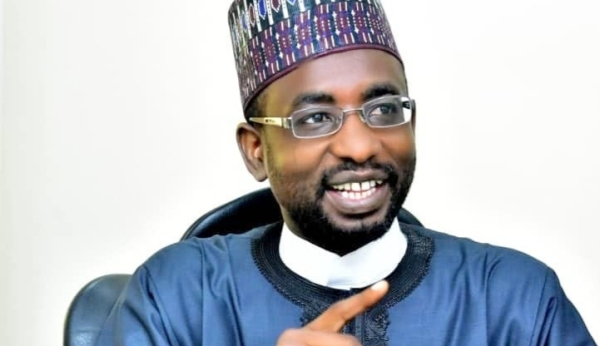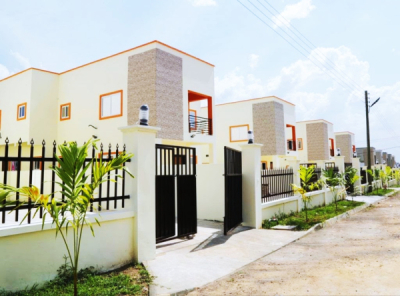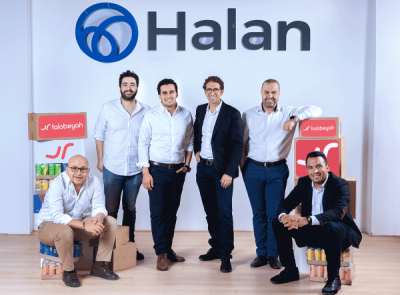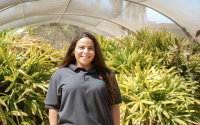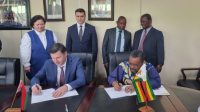He is an IT professional with extensive experience in growth management, policy formulation, IT operations, and digital transformation. Above all, he has earned the trust of the President of the Federal Republic of Nigeria.
Kashifu Inuwa (photo) is a Nigerian tech expert. The Abubakar Tafawa Balewa University graduate is the Director General of the National Information Technology Development Agency (NITDA).
He was reappointed to that position in February 2023, after a first 4-year term that started in 2019. The renewed confidence shown by President Muhammadu Buhari is the result of the successful actions he carried out during his first term.
During that term, Kashifu Inuwa successfully implemented various digital transformations, talent development, digital innovation, entrepreneurship and regulation development, and emerging technologies' exploration of indigenous IT content promotion programs, among others. When he joined the NITDA in 2017, he was the technical assistant to the then-director general. In that position, he was actively involved in the designing, planning, coordination, and execution of the agency's activities.
His professional career began in 2005 at Galaxy Information Technology & Telecommunication Ltd. where he was a network engineer and designed the Abuja wireless network that was serving over 50 clients. He also provided first and second-level support to over 1000 users.
In 2007, he joined Galaxy Backbone as an IP network field engineer before being promoted to senior network engineer (2009) and senior solution architect (2011). With his team, he designed more than 10 national IT systems that have helped promote the rollout of e-government platforms in Nigeria.
In 2014, he was hired by the Central Bank of Nigeria as a technology architect.
Melchior Koba
In recent years, fintech companies have driven the growth in venture financing in the African tech ecosystem. They attract billions of dollars, encouraging tech entrepreneurs to develop solutions adapted to local realities.
Anchor is a fintech solution developed by a Nigerian startup, allowing users to create financial products and services.
"We built Anchor to abstract away the complexities in building financial products, so businesses can get started in five minutes with a few lines of code. […] We have seen first-hand the painful process of closing banking partnerships, negotiating third-party contracts, and obtaining regulatory approvals. And more generally, the extensive time and effort required to launch financial products," explains Anchor co-founder Segun Adeyemi.
The fintech solution provides the infrastructure, the tools, and the documentation that can help developers easily develop financial products (KYC, fund transfers, account opening, etc) in minutes.
Anchor also offers flexible functionalities companies need to improve international performance. It also facilitates complicated financial operations. In 2022, it was selected to join the summer cohort of startup accelerator Y Combinator. This allowed it access to US$500,000 financing and access to an international pool of investors.
Adoni Conrad Quenum
Real estate is one of the fastest-growing sectors in Africa. However, it is sometimes hard for newcomers to enter the field. This is why some tech entrepreneurs developed a digital solution to facilitate investments.
AlphabloQ is a digital solution developed by a Kenyan startup to help Kenyans easily invest in the real estate industry or buy properties.
"We are making real estate investments accessible and profitable for investors like yourself. In a few simple steps, you too can begin building long-term wealth and generate passive cash flows monthly," the platform indicates.
Currently, the solution has no mobile app. Users can nevertheless access its web platform and create an account either as an investor or a seller.
Investors can browse the available properties and check the monthly cash flow they can expect. As for sellers, they can notify the startup of the properties they want to sell. The solution also facilitates exit from real estate investments by buying or selling tokens that represent fractions of real estate properties.
In January 2023, it was selected, along with 11 African startups, to take part in the acceleration program ARM Labs Lagos Techstars. The selection entitled it to up to US$120,000 in equity financing and additional support.
Adoni Conrad Quenum
In Kenya, the digitization of public services is one of the key focuses of the current government, which launched several projects to establish the required framework.
Kenya will start issuing digital birth and death certificates, as of March 1, 2023, the Ministry of Interior announced last week.
According to Julius Bitok (photo), Kenya's Principal Secretary for Immigration and Citizens Services, the launch of the e-service will coincide with the introduction of a unique personal identifier (UPI) that will act as a lifetime ID for newborns.
The certificates "will be accessed through e-citizen services, and people will be given what we call UPI. When you register, you will automatically receive the number that will become your birth certificate number," said Julius Bitok.
For several years now, getting administrative documents has proven difficult for Kenyans. To end the challenges they face, the government made public service digitalization one of its priorities.
The UPI is one of the results of that commitment. As its name suggests, it is a personal reference detail, similar to an ID card number. It will also serve as the death certificate number.
In addition to being used for birth and death registration, UPI will also serve as a school admission number as well as an index number for national examinations.
Samira Njoya
The fintech startup is now Egypt's second unicorn after the e-payment platform Fawry.
Last Wednesday, Egyptian fintech MNT-Halan announced a US$400 million funding round, which helped it achieve unicorn status.
The startup founded in 2018 by Mounir Nakhla and Ahmed Mohsen said it secured US$260 million in equity financing (equity) and US$140 million in debt financing, with securitized bond issuance last year.
A single investor, Abu Dhabi-based investment fund Chimera Investments, injected about US$200 million into the start-up in exchange for a 20% stake.
"The timing of the transaction is [...] a testament to our ability to significantly increase our revenues and open new revenue streams while growing our bottom line, despite the macro-economic situation," said MNT Halan CEO Mounir Nakhla.
Thanks to this new funding round, MNT-Halan becomes the second unicorn in Egypt, after the e-payment platform Fawry.
In September 2021, it raised US$120 million from several private equity funds, including Apis Growth Fund II, Development Partners International (DPI) and Lorax Capital Partners, and venture capital funds Middle East Venture Partners, Endeavor Catalyst, and DisruptTech. Among other things, the funds secured helped it acquire the online grocery shopping platform Talabeyah. Currently, it is the leading Egyptian lender to the unbanked with over US$2 billion of loans already disbursed.
With its digital footprint growing over the years, Africa has to deal with cyber threats that could jeopardize the development of its digital economy. This is the reason why most countries on the continent are betting on increased collaboration, with both regional and international partners, to clean their cyberspaces.
Last Monday, at the opening of the TAIEX INTPA International Strategic Seminar on Cybersecurity organized by the European Union and Cabo Verde, Cabo Verdean deputy Pirmer Minister Olavo Correia (photo, left) announced his country's plan to establish a national cybersecurity center.
He also appealed to the European Union for assistance with the implementation of that tedious project. "We want, along with the European Union, to work so that we have an effective National Cybersecurity Centre, so that we have a more robust regulatory framework so that we can be aligned with the best practices in terms of security," he said.
According to the government official, the planned center will allow Cabo Verde to deal with cyber-attacks and invest in the development of cybersecurity talents, which will also benefit other countries, notably West African neighbors.
The European Union replied it was ready to assist the country in the project given their common interests in data protection. "This is an area to which Cabo Verde attaches great importance and it is also an area to which we, the European Union, attach importance, not least because of the passage through the country of the EllaLink undersea cable, through which European data circulates, and it is also of interest to us to ensure the security of that data," said Carla Grijó (photo, ambassador), EU ambassador to Cabo Verde.
Samira Njoya
In large African towns, it is sometimes difficult to move around, with the constant traffic jams and poor roads. In that context, Schoolz wants to help students easily get to school.
Schoolz is a digital solution developed by an Egyptian startup to help students get to school easily no matter the conditions of the roads and the state of the traffic.
Using its Android or iOS apps, users can register for its services (only parents are allowed to register on behalf of underage students), access a list of bus routes and the real-time location of the bus they are going to board
The startup behind the solution explains that to ensure safety, it uses modern technologies and cameras and employs trained drivers and supervisors inside each bus. Currently, on Playstore, its Android app has been downloaded more than 5,000 times already.
"In the first week of the launch, we transported the first group of students to their schools, then we transported children to the club during the weekend. Quickly, schools, sports academies, and clubs communicated to us to use our services. We immediately provided technology, tools, and transportation technology for them, whether using our fleet or by using Schoolz system to manage the transportation process smoothly and completely," explains Hosni Ahmed, CEO and co-founder of Schoolz.
The startup now wants to diversify its operations and enter the business field, offering SaaS solutions to companies in Saudi Arabia and Egypt.
Adoni Conrad Quenum
She is a passionate entrepreneur who wants to give back control over the entire food value chain to significantly reduce crop losses in Egypt. With her brother, she developed a tech solution for that purpose.
Farah Emara (photo) is the CEO of Egyptian agritech startup Freshsource, which she launched with her brother Omar Emara.
Her startup leverages data and tech tools to transform the lives of producers, businesses, and consumers by creating sustainable food systems. It was launched after its two co-founders realized that in Egypt, food security is jeopardized because close to 30% of crops are lost due to poor post-harvest, storage, and transportation conditions. They also noticed that the high number of intermediaries in the supply chain and the lack of transparency generate an about 80% income shortfall for farmers.
Therefore, with over 80 employees, the startup launched in Cairo, in 2018, manages the entire fresh food value chain, including transportation, storage, and packaging in cold storage and appropriate facilities. It buys from farmers at consistent prices and sells the products at reduced rates. Nowadays, it serves clients in 11 cities in Egypt, with the aim of becoming the leading agricultural supply chain platform in the Middle East and North Africa region and changing the way fresh produce is bought, transported, and sold. It has already transported more than 10,000 tons of produce and claims over 1,000 deliveries weekly.
"FreshSource is disrupting the Egyptian agriculture industry by streamlining the value chain through technology. We are the region’s first B2B platform for fresh fruits and vegetables, connecting producers to businesses by leveraging data and technology and providing last-mile solutions," Farah Emara said in 2022.
Before founding FreshSource, between 2012 and 2016, she worked for Endeavour, a global community of high-impact entrepreneurs, as an entrepreneur selection and growth analyst and then as an entrepreneur selection and growth manager. In March 2016, she joined the consumer goods company Procter & Gamble where she worked as a Strategic Business Manager for the Middle East until 2018.
Let's note that her startup is among the 14 businesses selected for the 2023 Africa Tech Summit (February 15-16). In 2022, she received the Digital Agriculture Award of the year, issued by the World Bank and the IFC.
Melchior Koba
In 2022, telecom networks were seriously disrupted in Cameroon. In that context, with the investments, Orange wants to develop its services to fully satisfy its subscribers.
Orange, one of the leading telecom companies in Cameroon, will invest XAF150 billion (US$252 million) over the next five years to secure, expand and modernize its network infrastructure. The investment plan was announced by the operator's executives during a meeting with the local telecom regulator ART's officials last Tuesday.
According to Patrick Benon, CEO of Orange Cameroon, the investment will ensure improved service quality and network coverage in some areas not yet covered by Orange Cameroon. It will also allow the development of more innovative solutions, he added.
Of the XAF150 billion investment announced, XAF30 billion will fund the digitalization of service processes, and service platforms notably. The aim is to make the platforms more flexible and easy to use so that their integrated offers, services, and applications can be easily used but also streamline the after-sales service pathway to provide an improved customer experience.
Patrick Benon explains that during the meeting with the ART, Orange made firm commitments to improve its service quality this year.
It should be noted that this meeting is part of the consultation initiated by the ART to address the challenges that prevent the development of the telecom sector in general, and the digital economy in particular, in Cameroon. It follows a seminar organized (with support from the Ministry of Posts and Telecommunications) in Yaounde, in December 2022, to discuss the quality of telecom services.
Samira Njoya
By introducing multipurpose cards, the government plans to address the ongoing challenges faced by citizens who have no identity documents and improve access to essential services.
Last Monday, Sierra Leonan President, Dr. Julius Maada Bio (photo, left), officially launched the production and verification of secure, multi-purpose biometric identity cards in Sierra Leone.
The new multi-purpose smart cards are the result of a public-private partnership between the Government of Sierra Leone and Constrat Systems (SL) Ltd. They are designed to facilitate the identification of every citizen, reduce the cost of financial transactions, and increase financial inclusion, among other things.
"With the chip-based biometric ID, banks, forex bureaus, micro-finance institutions, mobile money providers, and other financial service providers, among others, can now easily and effectively carry out the electronic know-your-customer (eKYC) process to authenticate and verify their customers at far lower costs for trusted financial transactions across Sierra Leone," the President said.
The new biometric card can be issued to Sierra Leonans (National ID cards), ECOWAS nationals (ECOWAS ID cards), and other foreigners (non-national ID cards). It will offer holders the possibility of carrying out transactions anywhere and at any time while enjoying the dual advantage of verifying their identity and being able to easily access the various social facilities provided by the government.
Let's note that in January, the Sierra Leone Civil Registration Authority (NCRA) and the Modular Open Source Identity Platform (MOSIP) signed a memorandum of understanding for the implementation of a national digital identification system.
Samira Njoya
More...
The tech enthusiast is a computer system and network administrator who graduated from ABCO Technology, an accredited Californian computer training academy. After years of experience in the U.S Tech environment, he decided to launch Zofi Cash, which provides instant salary advances to help Ugandans handle emergency needs.
Paul Kirungi (photo) is a Ugandan tech entrepreneur and the founder/CEO of Zofi Cash, a fintech startup that provides instant salary advances to employees.
The entrepreneur, based in the U.S. since 2012, founded Zofi Cash in 2020 to break the 30-day pay cycle in Africa. His solution allows employees to address their financial emergencies before payday with very low-interest rates without any collateral other than employers' approval.
"Zofi Cash is a financial services company focused on breaking the 30-day pay cycle. We seek to change the way employees or contractors get paid in this country and across Africa. That is why our salary advance service is now a market leader, and we haven’t stopped innovating. Our teams are intentional about the continuous improvement of the platform to allow more people to get paid daily," he said in an interview with entrepreneur ecosystem builder Innovation Village Uganda.
On January 31, 2023, Zofi Cash was selected, along with 13 others, to participate in the 2023 Africa Tech Summit (Feb 15-16) at the Sarit Expo Centre in Nairobi, Kenya.
Paul is an alumnus and ambassador of the Startup Africa Roadtrip, a non-profit organization supporting innovation in developing countries.
He entered the professional world in 2016, working as a systems support at Providence Hospital, in California. Months later, he joined Barkley Court Reporters as a system administrator. Thanks to Zofi Cash, he received the Next Generation Africa 2021 Best Fintech issued by Startup Africa Roadtrip.
Melchior Koba
Jand2Gidi is a digital startup developed by a Nigerian logistics startup. It allows merchants to send packages around and outside Nigeria and also receive packages from abroad.
To access its services, users need to visit its web platform and create an account to access the Jan2Gidi dashboard that allows subscriptions to the various services.
The solution allows users to have international delivery addresses where their packages can be delivered. From there, it takes over to deliver the packages in Nigeria. It also offers a service called "Shop For Me," which enables users who so wish to order from US and UK stores through Jan2Gidi.
It also offers bicycle or van delivery services from Lagos and Abuja to the 36 states in Nigeria, transportation and relocation services as well as sea freight for heavy machinery, cars, and bulky items to be shipped to Nigeria.
In January 2023, the startup was selected, along with ten others, to participate in the third edition of the Africa Startup Initiative Program (ASIP) acceleration program that entitles participants to US$18,000 in equity contribution and US$750,000 in credits, services, and in-kind value.
Adoni Conrad Quenum
The internet service provider currently operates in 15 counties but, it plans to add 10 more counties to its network, therefore providing services to over 250,000 Kenyans over the next five years.
recently announced the closing of its US$9 million Series B funding round. It raised US$6 million fromInfraCo Africa's investment arm and US$1.5 million from E3 Capital and the same amount from the Dutch Entrepreneurial Development Bank FMO.
"Mawingu’s aim is not to simply drop an Internet cable at someone’s house. We seek to help our customers access new opportunities for work, education, entertainment, and social connections through the power of the internet," said Mawigu's CEO, Farouk Ramji.
Since 2012, Mawingu has been providing internet services in Kenyan rural and peri-urban areas. In late 2022, it was claiming over 7,500 active users and more than 300,000 hotspot users across the country.
Its ambition is to give internet access to 100 million Africans. For Claire Jarratt, InfraCo Africa Chief Investment Officer, Mawingu contributes to economic development by providing internet access to populations. "As our first telecoms investment, Mawingu appealed to us as its services are designed to provide affordable internet access tailored to the needs of underserved rural customers," she said.
Samira Njoya
Starlink, the satellite constellation operated by Elon Musk's SpaceX, launched its satellite internet services in Nigeria yesterday, January 31. Its aim is to provide a fast and reliable internet connection to users.
On Twitter, the company announced that Nigeria is the first African country to be able to use SpaceX's network. It also indicated that the service will launch, this year, in several other African countries, including Mozambique, Kenya, and Angola. South Africa was also supposed to welcome the satellite internet services this year but, in August 2022, SpaceX dashed the hopes by updating its rollout plan.


